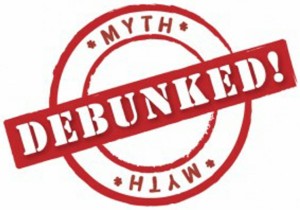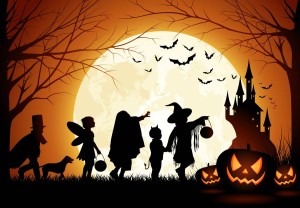Our language is filled with strange expressions that we often use and hear. Our understanding of these maxims usually is clear, but if you just look at the expressions some seem pretty strange.
Take the phrase “Bite the Bullet,” for example. Do we really know anyone who chews on bullets? Not likely, but we certainly know that it simply means to accept something difficult or unpleasant. In times past there was no quick access to anesthesia before emergency surgery during battle, or no time to administer it. The surgeon told patients to bite down on a bullet in an effort to distract them from the pain.
Paint the Town Red. One theory suggests this phrase was born out of the brothels of the American West, and referred to men behaving as though their whole town were a red-light district. A more common explanation is that the phrase owes its origin to one legendary night of drunkenness. In 1837, the Marquis of Waterford – a known lush and mischief maker – led a group of friends on a night of drinking through the English town of Melton Mowbray. The bender culminated in vandalism after Waterford and his fellow revelers knocked over flowerpots, pulled knockers off of doors and broke the windows of some of the town’s buildings. To top it off, the mob literally painted a tollgate, the doors of several homes and a swan statue with red paint. The marquis and his pranksters later compensated Melton for the damages, but their drunken escapade likely is why “paint the town red” became shorthand for a wild night out.
Give Him the Cold Shoulder. Rudely tell someone he isn’t welcome. In medieval England, giving someone the cold shoulder was a polite way to let guest know it was time to leave by giving them a cold piece of meat from the shoulder of beef, mutton or pork.
Go Cold Turkey. People once believed that during withdrawal the skin of drug addicts became translucent, hart to touch and covered with goose bumps – like the skin of a plucked turkey.
Blood Is Thicker Than Water. Today we accept this as meaning that family comes before everything else. In ancient Middle Eastern culture, blood rituals between men symbolized bonds that were greater than those of family. The saying also relates to “blood brothers” – warriors wjho symbolically shared the blood shed together in battle and who were said to have stronger bonds than biological brothers.
Break the Ice. Today this has nothing to do with ice. It simply means to initiate a friendship or start a project. But before the days or trains or cars, port cities that thrived on trade suffered in winter because frozen waters prevented ships from entering the city. Small ships known as “icebreakers” would rescue icebound ships by breaking the ice and providing a path for them.
Butter Someone Up. When we say this, we mean that we flatter someone to ingratiate ourselves with them. The phrase stems from an ancient Indian custom of throwing balls of butter at statues of the gods to seek their favor.
Cat Got Your Tongue? When someone is at a loss for words, we may utter this expression. This phrase has two possible origins. One might refer to the cat-o’-nine-tails whip used by the English Navy for flogging. The whip caused so much pain victims were left speechless. Or the phrase may have come from the practice of cutting out the tongues of liars and blasphemers and feeding them to cats.
Go the Whole Nine Yards. World War II fighter pilots received a 9-yard chain of ammunition. When a pilot used the whole chain on one target, it was said he gave it “the whole nine yards.”
Caught Red-Handed. An old law said that if soeone butchered an animal that didn’t belong tom, he had to be caught with the animal’s blood on his hands to be convicted. Being caught with freshly cut meat did not make the person guilty.
Wake Up On the Wrong Side of the Bed. Wake up in a bad mood. The left side of the body used to be considered sinister. To ward off evil, innkeepers made sure the left side of the bed was pushed against a wall so guests had to get up on the right side of the bed.
Eat Humble Pie. Today this simply means to make an apology and accept the humiliation that goes along with it. During the Middle Ages, the lord of a manor would hold a feast after hunting. Tjhe lord would receive the finest cut of meat at the feast, while those of lower standing were served a pie filled with the entrails and innards, known as “umbles.” Receiving “umble pie” was considered humiliating because it told the others at the feast of the guest’s lower status.
Kick the Bucket and Bucket List. To kick the bucket is to die and the bucket list outlines what one wants to accomplish before doing so. Used to be that when a cow was killed at a slaughterhouse, a bucket was placed beneath it while the cow was positioned on a pulley. Sometimes the animal would kick during the process and literally kick the buck before being killed.
More Than You Can Shake a Stick At. Farmers controlled their sheep by shaking their staffs to indicate where the animals should go. When farmers had more sheep than they could control, it was said they had “more than you can shake a stick at.”
No Spring Chicken. Chicken farmers in New England generally sold chickens in the spring, so chickens hatched in the spring yielded better earnings than the older birds that survived the winter. Sometimes the farmers tried to sell the old birds for the price of a new spring chicken. Clever buyers complained that the fowl was “no spring chicken,,” so the term came to represent anyone past their prime.
Pleased As Punch. In Punch and Judy, a 17th century puppet show for children, Punch always killed people and always felt pleased with himself afterwards. Hence today’s meaning of the phrase is to be very happy.
Rub the Wrong Way. Today’s meaning is to irritate, bother or annoy someone. It stems from colonial times when servants were required to wet-bub and dry-rub the oak floors each week. Doing the rubbing against the grain caused streaks to form, making the wood look awful and irritating the owner.
Saved By the Bell. Today’s meaning is simply to be rescued from an unwanted situation. But originally it literally meant life over death. Being buried alive once was a common occurrence and those who feard such a fate were buried in special coffins that connected to a bell above ground. Guards listened for bells in case they had to dig up a living person and save them by the bell.
Show Your True Colors. Reveal your tyrue nature. Warships once flew multiple flags to confuse their enemies. The rules of warfare, however, stated that a ship had to hoist its true flag before firing, thus displaying its country’s true colors.
Spill the Beans. Beans were used in ancient Greece to vote for or against candidates entering various organizations. One container was used for each candidate and group members would place a white bean in the container if they approved of the candidate and a black bean if they did not. A clumsy voter sometimes knocked over the container, revealing all of the beans and allowing everyone to see the otherwise confidential votes.
 – Poinsettias are NOT toxic
– Poinsettias are NOT toxic

